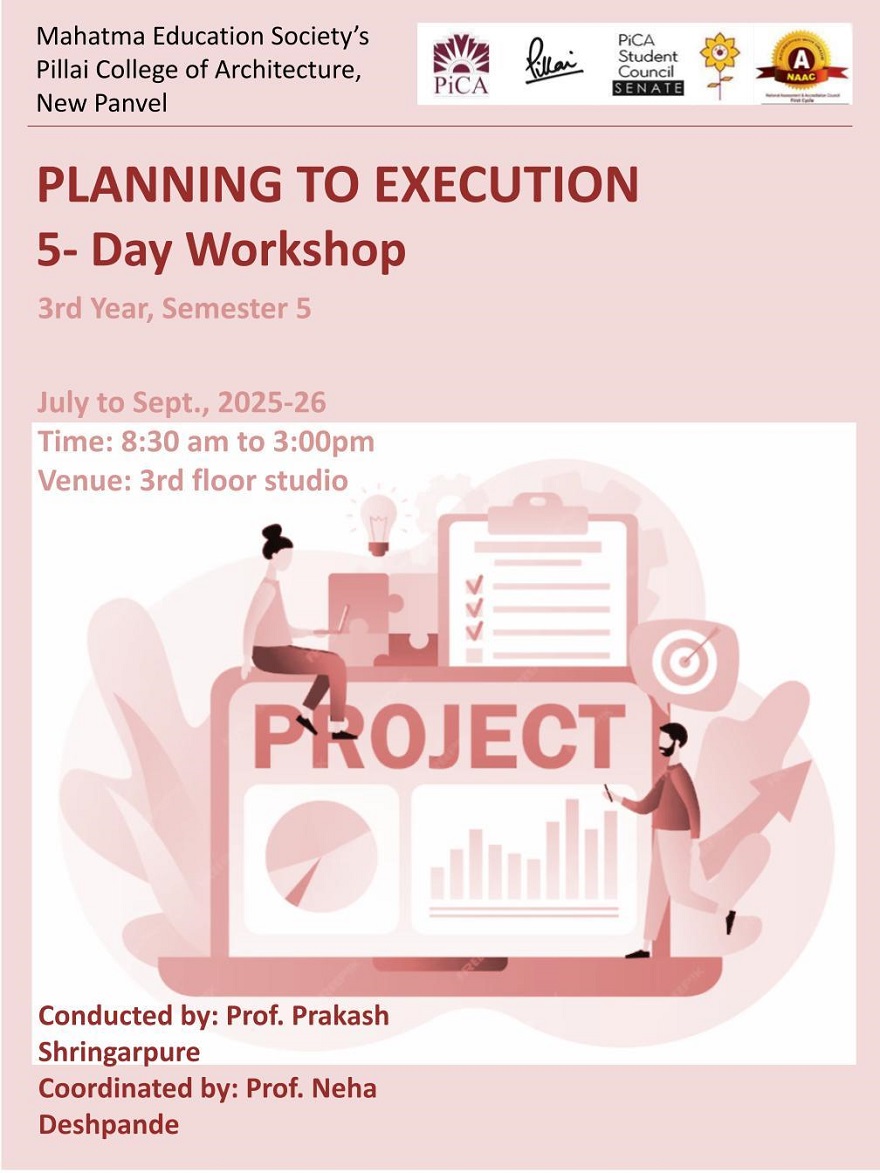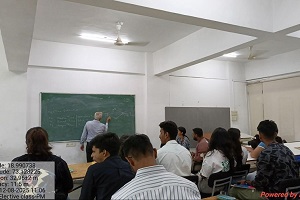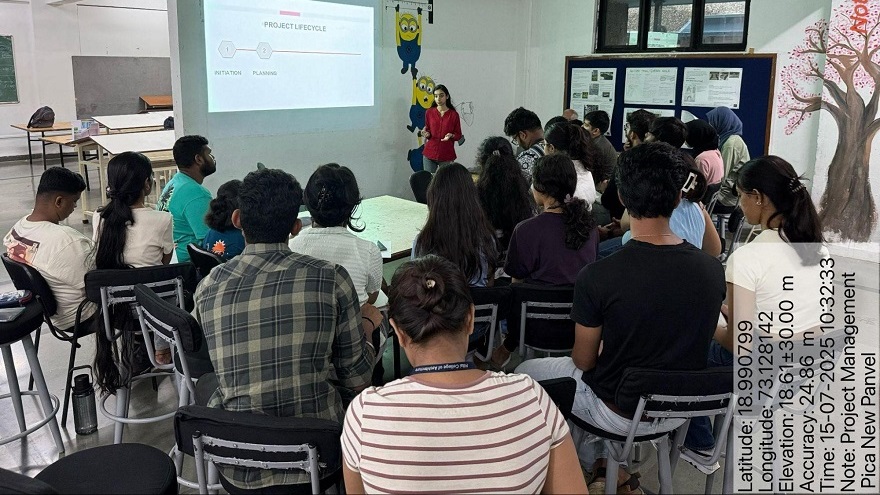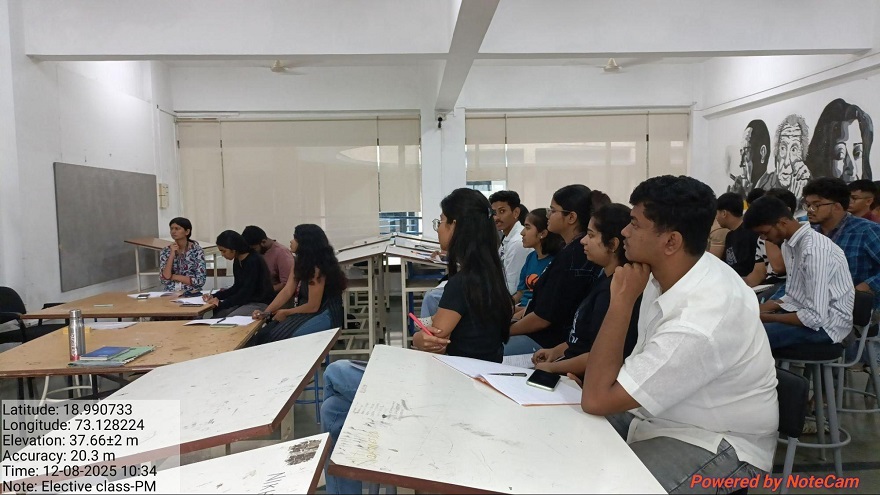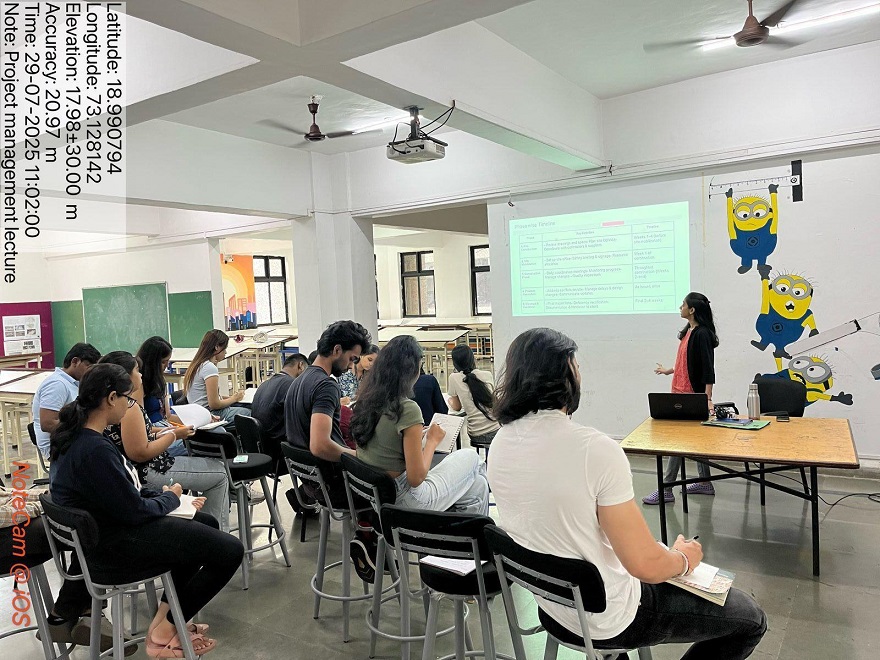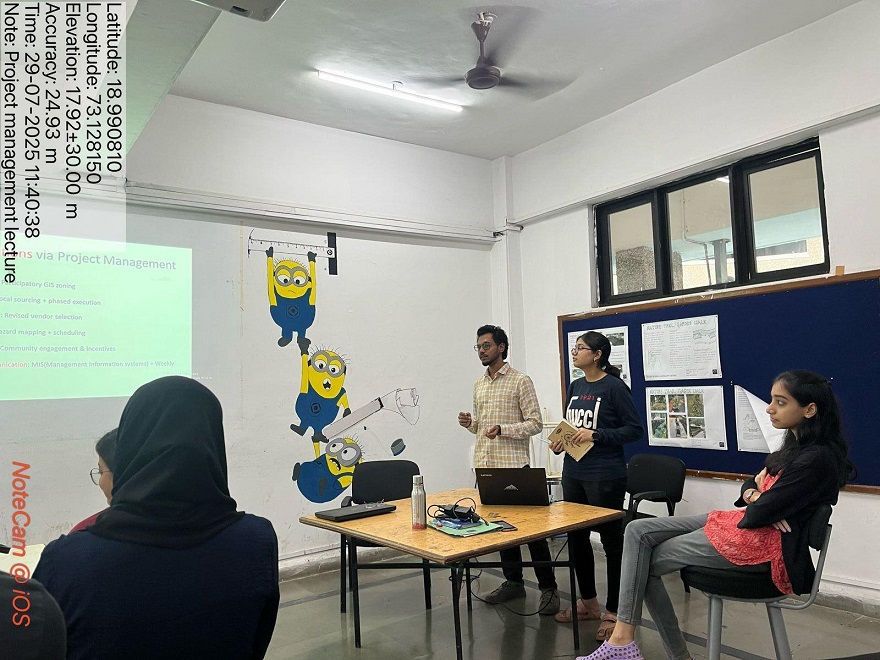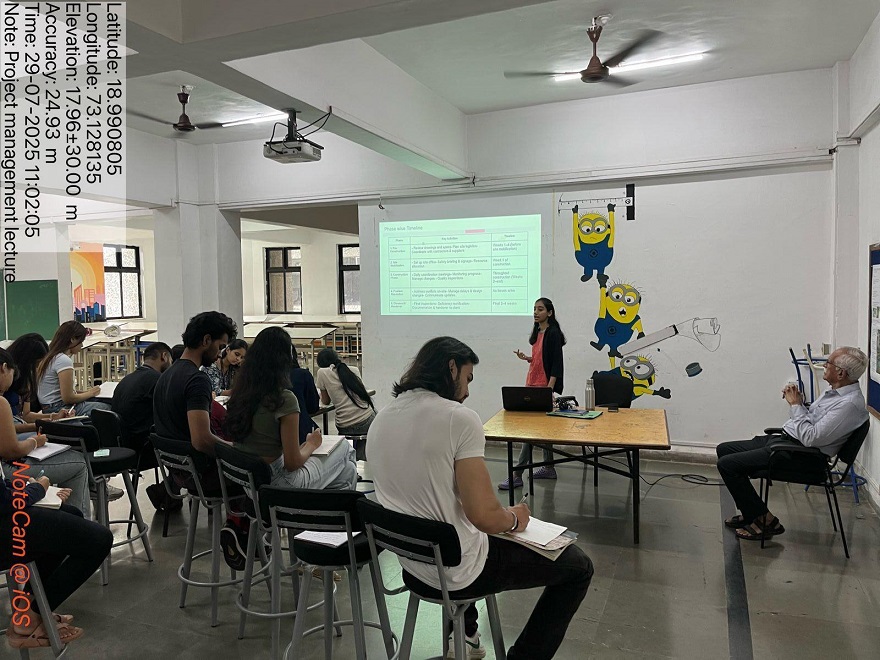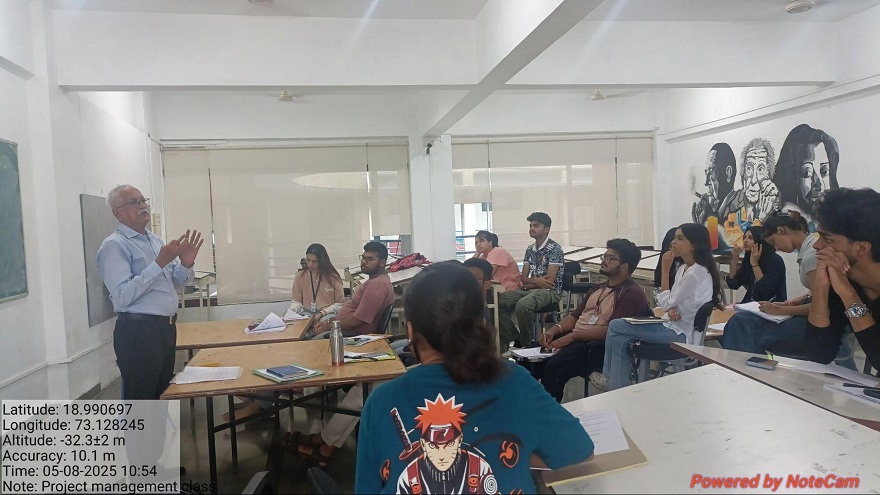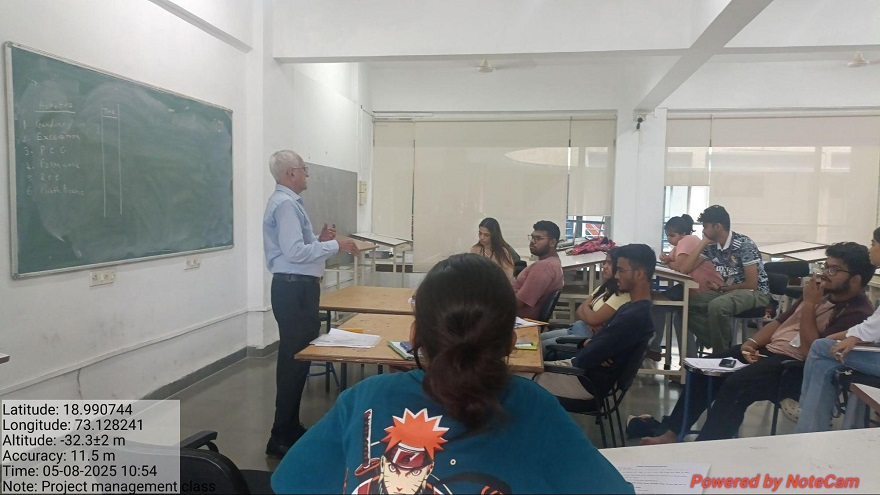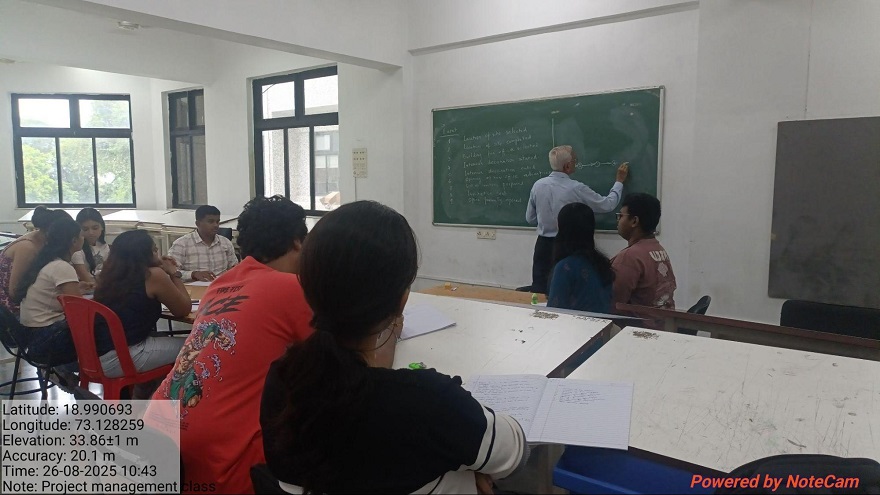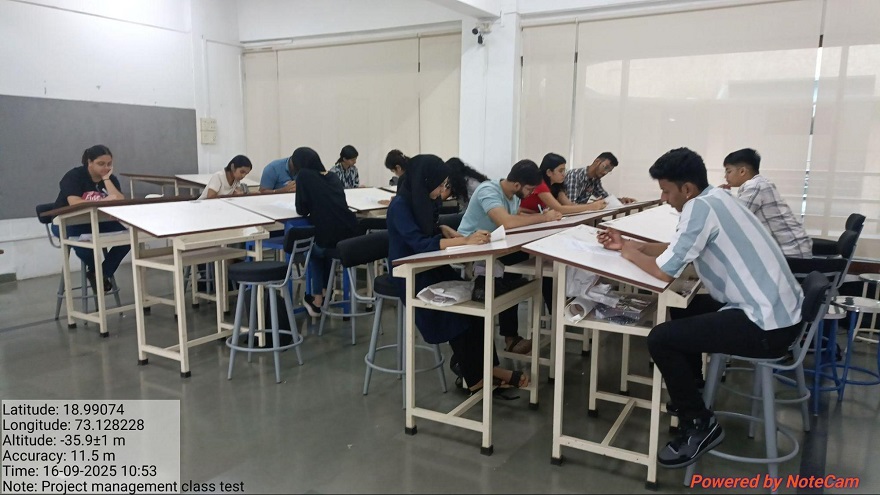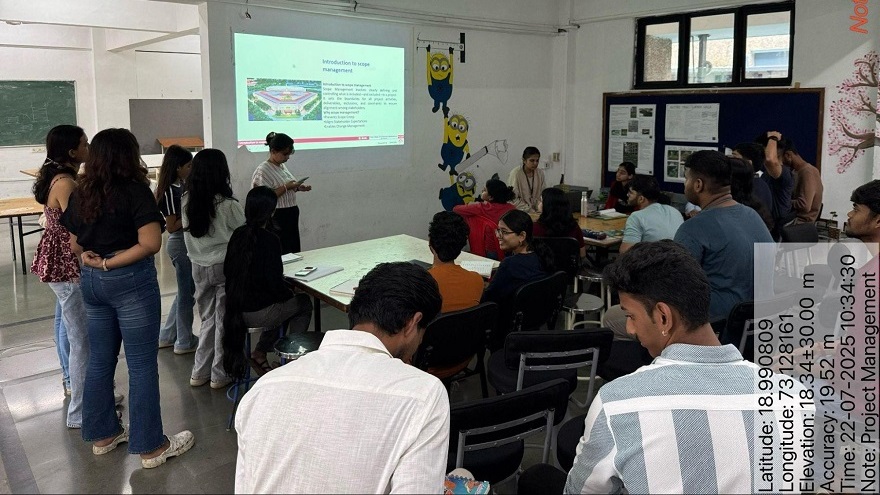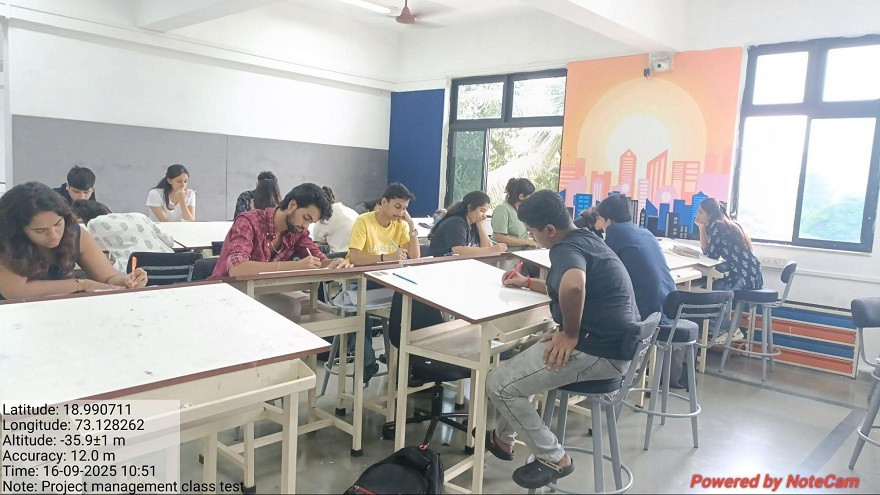| Subject | 5 Days Workshop |
| Date | 15th July 2025 to 16th September 2025 |
| Time | 8:30 a.m. to 3:00 p.m. |
| Venue | Third floor studio |
| Year | 3rd Year B.Arch. |
| Session | 2025-26 |
| Faculty Coordinator | Prof. Neha Deshpande |
| Conducted by | Prof. Prakash Shringarpure |
| Workshop Details | ||||
|---|---|---|---|---|
| Week | Date | Topic | Objectives | Related Assignments |
| 1 | 15/07/2025 | Introduction to Project Management | To understand What is project, project management, its importance. To understand who is Project Manager and his role & competencies. | Assignment 1: A4 Report - Brief Understanding of Project management inclusive of all topics discussed |
| 2 | 29/07/2025 | Details in Project Management- Knowledge Areas | Project management knowledge areas, various phases involved | Case study & presentation |
| 3 | 05/08/2025 | Project lifecycle | To understand Project lifecycle, | Understanding of schedule and resourse allocation |
| 4 | 19/08/2025 | Site co-ordination & management Introduction to CPM & PERT | Introducing CPM & PERT to students and exploring CPM through network analysis | Class Work & Intermediate reading & quizes |
| 5 | 16/09/2025 | Network analysis | Continuation of the earlier lectures | Class Work |
Day 1
Prof. Neha Deshpande introduced the topic of project & project management to students. She explained its importance for the construction field in the current scenario. She also explained the relevance of project management in the architecture field & how it is beneficial for architects. Further what are the scope and opportunities for project managers in the field were discussed in detail. Sub topics such as who is project manager, his role & responsibilities were also discussed.
Day 2
Prof. Neha Deshpande explained the role of the project manager in a project & his competency. The various knowledge areas involved & phases involved in a construction project were discussed in detail with different examples. Scope management, risk management, time management, quality control & monitoring were a few of the topics discussed on day 2 of the workshop.
Students were asked to present a case study of the architectural project with learning from the key knowledge areas.
Day 3
On day 3, Prof. Neha Deshpande introduced the topic of project lifecycle to students & different stages involved in planning construction phases. Presentation was given and then a broad idea how the project is taken ahead from planning to execution was discussed. Quiz was played with the understanding of the 3 day learning process.
Day 4
Day 4 commenced with presentation by Prof. Neha Deshpande on Site coordination & management. She explained why it is so important and discussed problems that might occur due to poor site management. What all safety measures are taken on site and the planning process required before the start of construction on site was taught.
In the 2nd half of the session, Prof. Prakash Shringarpure introduced concepts of PERT & CPM to students & how they are beneficial for project execution. Also, he explained the Critical Path Method in detail for understanding of network analysis.
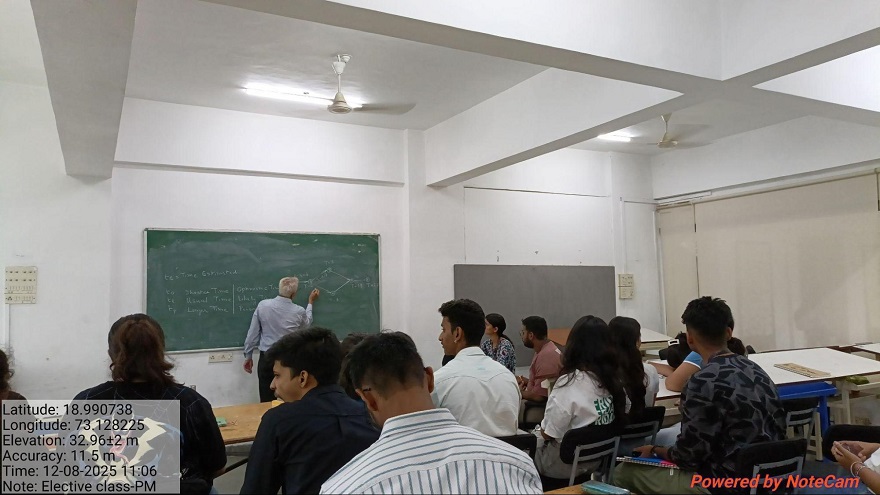
Day 5
Prof. Prakash Shringarpure continued network analysis in detail with the help of various examples & solving problems in class. Exam was conducted on the last day to test the knowledge of the students gained during the workshop.
This 5 day workshop was conducted during July to September, 2025 in the third floor studio with approximately 40 students of 3rd year B Arch registered.
In the realm of architecture, Project Management is about the key to delivering projects on time, within budget, and to the highest quality standards. As the architectural profession continuously evolves, understanding the principles of Project Management becomes increasingly vital. This workshop brought into focus the importance of project management in the architecture fraternity, connecting the dots between design, execution, and completion phases.
Aim: Introduction to Project Management: Our primary aim was to introduce students to the fundamentals and concepts of project management.
Understanding Architectural Relevance: We aimed to enable students to grasp the significance of project management in the architecture fraternity, particularly its direct relevance to construction projects.
CPM & PERT Proficiency: We strived to make students proficient in the use of CPM and PERT techniques in project management, with a specific focus on their application in construction projects.
Comprehensive Project Management: Our first objective was to introduce students to the holistic nature of Project Management, emphasising its role in overseeing the entire project lifecycle.
Mastering CPM & PERT: Our second objective was to ensure that students not only understood but also mastered the application of CPM and PERT techniques, especially in the context of network analysis for construction.
Fundamentals of Project Management: The workshop commenced with a thorough exploration of the basics and core concepts of Project Management, highlighting its significance in the architectural context. Students gained a strong foundation in understanding project life cycles.
Comprehensive Project Lifecycle: We delved deep into the holistic approach to Project Management, which extends beyond the design phase to encompass execution, monitoring, and completion. Students learned how to manage every aspect of a project with precision and efficiency.
On site coordination and management required for materials, equipment, safety of workers were taught to students.
CPM and PERT Techniques: The workshop introduced students to two powerful tools in Project Management, Critical Path Method (CPM) and Program Evaluation and Review Technique (PERT). Special emphasis was placed on their application in network analysis for construction projects, equipping students with the skills to streamline project scheduling and resource allocation.
The students developed the following understanding and ability after the workshop.
A strong understanding of project management principles and practices. The ability to manage architectural projects from conception to completion. Proficiency in utilising CPM and PERT techniques for precise project scheduling and resource allocation.
A heightened awareness of the critical role project management plays in the field of architecture and construction, setting them on a path to success and excellence in their careers.
